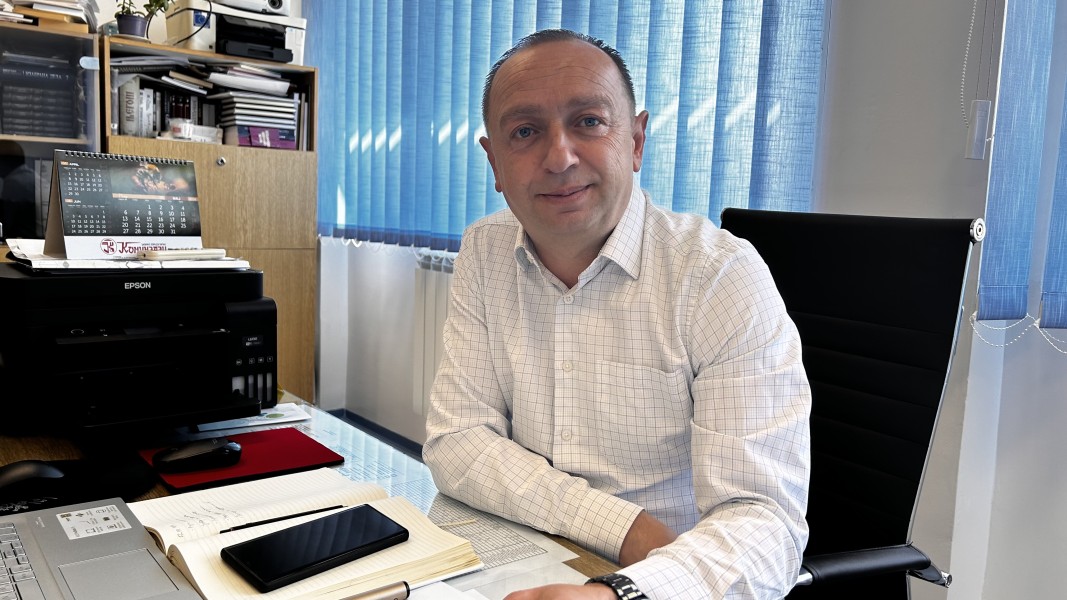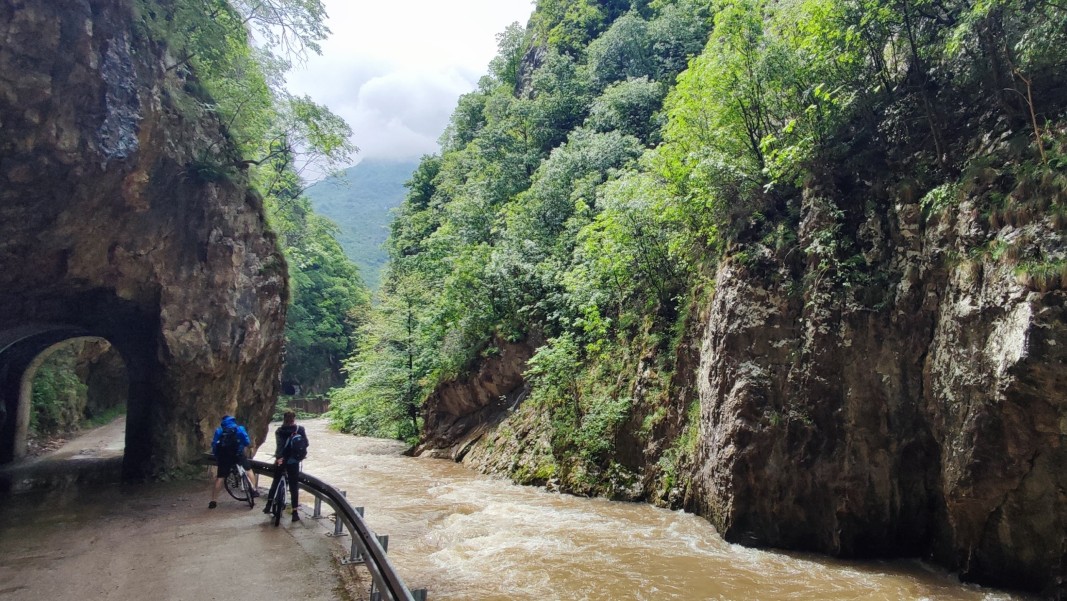
‘We’re a secondary school – grades nine through twelve – with both a general education programme and a vocational tourism focus,’ says Bratislav Stamenov. ‘Since 2009, we’ve brought back teaching in the mother tongue, and now eight out of our twelve classes are taught entirely in Bulgarian. Even students who have never studied Bulgarian before manage just fine.
We study Bulgarian literature too – alongside classics like Ivan Vazov, Elin Pelin, and Lyuben Karavelov, we also explore the work of modern Bulgarian writers, like Georgi Gospodinov. Our school library has over 25,000 books, more than half of which are in Bulgarian.
We are a state-run school under the patronage of the Ministry of Education of the Republic of Serbia and follow the Serbian education system. We still don’t have a full set of translated textbooks, but our teachers translate the lessons themselves, which is actually the hardest part of the job.”
So we visit the library at the Tsaribrod High School to find out what books the students are reading. There, we meet Miodrag Džunov, a French teacher. He comes to Tsaribrod twice a week and spends the rest of his time teaching French and English at the Dushan Radovic primary school in the municipal centre of Pirot, to which Tsaribrod belongs. Miodrag also has Bulgarian roots in the Tsaribrod area. As he does not yet speak Bulgarian fluently, we speak in Serbian. We ask him if the children in Tsaribrod enjoy reading and whether they use the library.
"Yes, the students read here. Mostly textbooks in Bulgarian and Serbian. That's what they need for school, so that's what they go for. The most popular authors are Ivan Vazov and Ivo Andrić.”
We are curious about the status of French at Sts. Cyril and Methodius School in Tsaribrod.
'French is taught as a second foreign language here,' explains Miodrag Džunov. "The first foreign language is English. However, some students have chosen to study Russian instead. I have been working here for more than 11 years. The school is very well equipped: the classrooms are modern and renovated with up-to-date technology, and we also use information technology, which enhances the education we provide.

The secondary school in Tsaribrod follows the Bulgarian tradition of holding proms every year around 24 May. The graduating class organises the celebrations and their parade down the main street of the town is spectacular — a celebration of youth and beauty that brings residents and visitors to Tsaribrod together from near and far. Many of the Tsaribrod graduates continue their studies at Bulgarian universities.
‘Most of the graduates continue their studies in Bulgaria,’ says high school principal Bratislav Stamenov. ‘As part of the Bulgarian national minority, they have the opportunity to study under Decree 103 of the Bulgarian Council of Ministers, which gives preferential conditions to young people from Bulgarian communities abroad when applying for university.’
Bringing youthful energy, colour and cheer to the Bulgarian National Radio studio, students from the Bulgarian Sunday School Dr Petar Beron arrived from Larnaca. The group from Cyprus — 16 pupils aged between 14 and 19 — is currently on a week-long..
At the outset of the war between Russia and Ukraine, the Bessarabian Bulgarians across all lands marked their national day with prayers for peace. Nearly four years on, burdened with even greater sorrow, they commemorate that special day scattered..
Switzerland is one of the smaller Central European countries on the Old Continent. It consists of twenty-six cantons with a population of about 9 million people, according to the latest Eurostat data from 2024. 41% of those residing in the country are..
On November 8 in Hall 11 of the National Palace of Culture, Bulgaria’s best masters and artisans will be awarded for the third time. The founder and..

+359 2 9336 661
